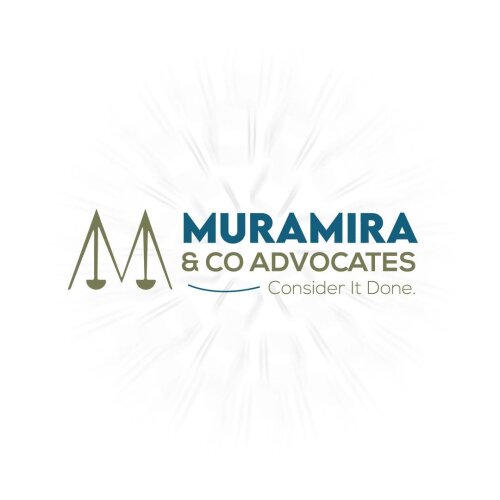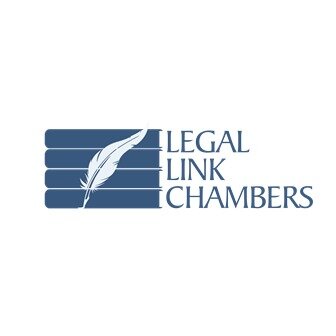Best Debt & Collection Lawyers in Kigali
Share your needs with us, get contacted by law firms.
Free. Takes 2 min.
List of the best lawyers in Kigali, Rwanda
About Debt & Collection Law in Kigali, Rwanda
Debt and collection laws in Kigali, Rwanda, are designed to balance the interests of creditors and debtors, ensuring fair practices are upheld in the process. These laws govern how debts are collected, providing a framework for both voluntary and forced collection methods, and include regulations to protect consumers from harassment and unfair practices. With Kigali being a rapidly developing city, the need for robust debt management and collection laws has become increasingly important, reflecting the city's growing financial sector and the necessity to protect financial health.
Why You May Need a Lawyer
There are several situations where you might require legal assistance in the context of debt and collection:
- Disputed Debts: If there is a disagreement regarding the amount owed or the validity of a debt.
- Harassment by Creditors: When creditors are using illegal or unethical practices to collect a debt.
- Confusion about Rights and Obligations: If you're unsure about your rights as a debtor or creditor.
- Negotiating Repayment Terms: To assist in negotiating more manageable repayment terms.
- Filing for Insolvency or Bankruptcy: Legal guidance in initiating a bankruptcy process.
Local Laws Overview
Kigali's debt and collection laws are primarily derived from the broad legislative framework of Rwanda's civil law system. Key aspects include:
- Right to Collect: Creditors must follow legal protocols to collect debts and cannot resort to harassment or intimidation.
- Insolvency Law: There are specific provisions under the Rwandan law for insolvency proceedings, providing structured frameworks for debt resolution.
- Contract Enforcement: Debt collections are governed by contractual obligations, which must be clear and legally enforceable.
- Judicial Remedies: Creditors can seek judicial enforcement of debts through Rwandan courts if amicable solutions are unachievable.
Frequently Asked Questions
What should I do if I am being harassed by a creditor?
Document all communications and report the behavior to local authorities. Consider consulting a lawyer for advice on how to legally stop the harassment.
What are my options if I cannot repay my debt on time?
You can negotiate directly with creditors for extensions or revised payment plans, or seek legal counsel to explore alternatives like restructuring your debt.
How can I verify the validity of a debt?
Request a written validation of the debt from the creditor, which should include the amount owed, details of the original debt, and information about the creditor.
Can a court order impact my ability to dispute a debt?
Yes, a court order can impact your ability to contest a debt if it rules against you. It’s advisable to seek legal advice and respond promptly to any court summons.
What constitutes an unfair debt collection practice?
Unfair practices include threats, repeated unwanted phone calls, public exposure of debts, and misrepresentation. These can be legally challenged.
How long can a debt be pursued legally in Rwanda?
Debt recovery is subject to a statute of limitations, and the timeframe can differ based on the type of debt. Legal advice should be sought for specific cases.
Is there a government body that oversees debt collection practices?
Yes, Rwanda's National Bank and other relevant regulatory bodies oversee financial and debt collection practices.
What steps are taken in a court-led debt recovery process?
Usually, it involves proving the debt in court, obtaining a judgment, and then executing that judgment to recover the debt through legal means.
Am I allowed to represent myself in debt-related court proceedings?
Yes, but having a lawyer can provide you with better guidance through legal complexities and increase your chances of a favorable outcome.
Can interest rates on debts be challenged legally?
Yes, if they exceed the statutory rates or were not agreed upon during the contract formation, you can seek legal recourse to challenge them.
Additional Resources
Here are some resources that could be beneficial:
- Rwanda Bar Association: A good starting point for finding a qualified lawyer.
- National Bank of Rwanda: Provides guidance on financial regulations.
- Consumer Protection Departments: Advise on consumer rights and debt issues.
- Local NGOs: Some organizations provide free legal clinics for those dealing with debt issues.
Next Steps
If you need legal assistance in debt and collection matters:
- Identify the Issue: Clearly understand your situation and the specifics of your debt-related issue.
- Gather Documentation: Collect all relevant documents such as contracts, letters, and any evidence of payments or communication.
- Consult a Legal Professional: Find a lawyer specializing in debt and collection through the Rwanda Bar Association or personal recommendations.
- Prepare for Consultation: Have specific questions ready and be clear about your objectives for legal assistance.
This informational guide is designed to provide a basic understanding and assist you in navigating the legal landscape of debt and collection in Kigali, Rwanda. Always consider obtaining professional legal advice for detailed guidance and assistance.
Lawzana helps you find the best lawyers and law firms in Kigali through a curated and pre-screened list of qualified legal professionals. Our platform offers rankings and detailed profiles of attorneys and law firms, allowing you to compare based on practice areas, including Debt & Collection, experience, and client feedback.
Each profile includes a description of the firm's areas of practice, client reviews, team members and partners, year of establishment, spoken languages, office locations, contact information, social media presence, and any published articles or resources. Most firms on our platform speak English and are experienced in both local and international legal matters.
Get a quote from top-rated law firms in Kigali, Rwanda — quickly, securely, and without unnecessary hassle.
Disclaimer:
The information provided on this page is for general informational purposes only and does not constitute legal advice. While we strive to ensure the accuracy and relevance of the content, legal information may change over time, and interpretations of the law can vary. You should always consult with a qualified legal professional for advice specific to your situation.
We disclaim all liability for actions taken or not taken based on the content of this page. If you believe any information is incorrect or outdated, please contact us, and we will review and update it where appropriate.












